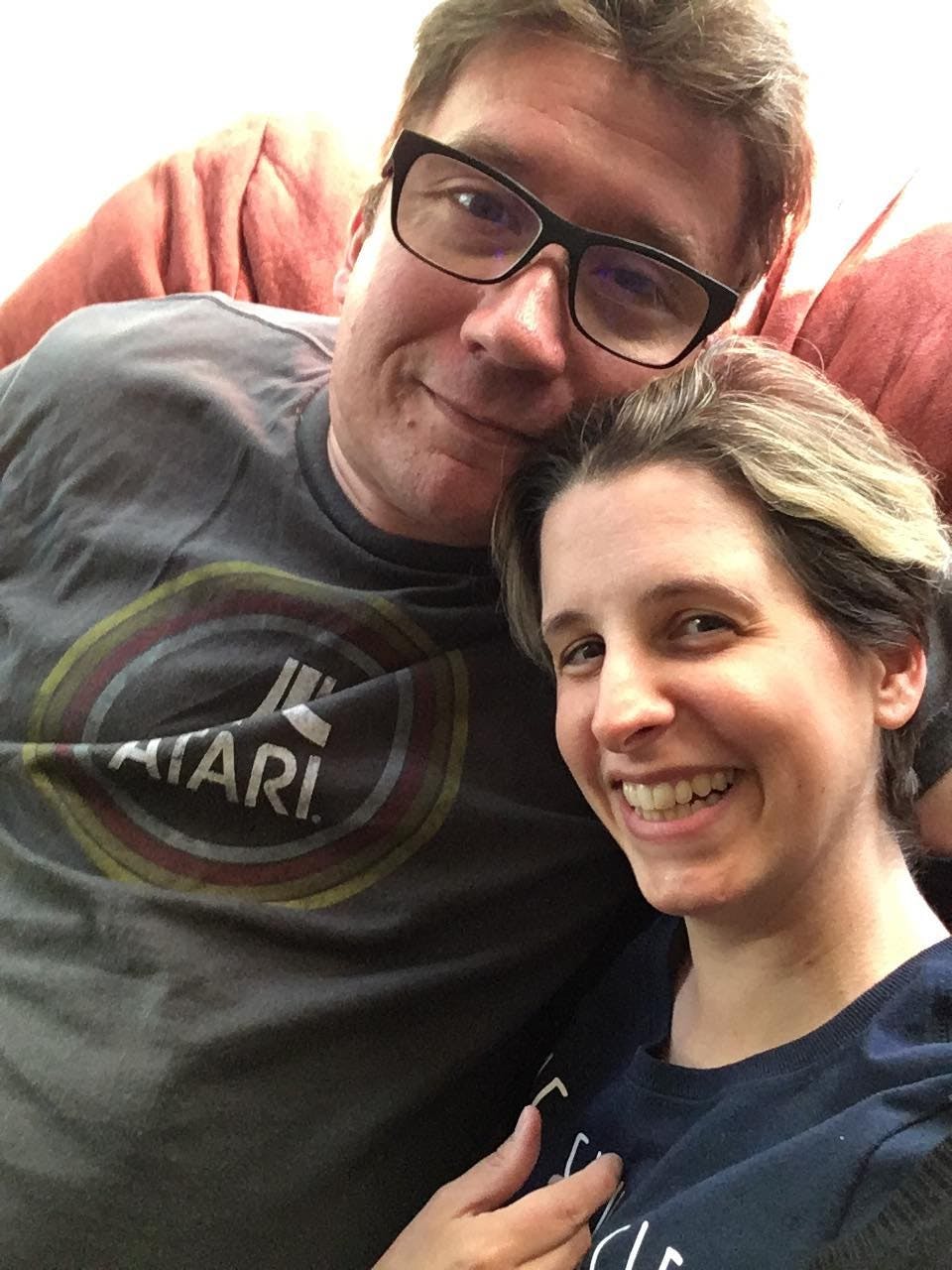When word of the novel coronavirus hit the states in early March, the subsequent lockdowns, mask mandates and spike in cases felt surreal.
It was then when attorney Erik Grill, 43, and his wife, social worker therapist Abigail, 39, found themselves under viral attack.
Erik, who described himself as patient zero of the household, had begun to develop a slight cough at work around Friday, March 13. He said it wasn't worrying at first, that it was dry and soft, and he joked about it with his coworkers as they went on through their meeting discussing potential business closure processes.
"We were all just barely coming to grips with the idea of what this virus was and what the impacts were going to be," he said. "(At this point), (Whitmer's) orders were still a week away."
As Michiganders since day one, the couple lived with their baby and Erik's mother. Through the weekend, Erik said he slowly started to develop more of the symptoms the Centers for Disease Control and Prevention warned about other than just the dry cough, like chills and a fever.
"I just kind of shrugged and said, 'Well maybe this is just a weird cold.' It was still the middle of March, so the air was chilly," he said.
Except, he said the symptoms only worsened from there. He said he wrapped himself in numerous blankets and sweaters, but his chills weren't allowing him to find any sort of bodily warmth.
When he called his doctor to explain the situation, they suggested getting him tested for the flu, as many health professionals did back then because COVID testing was not yet widely available, and cases were still in the low double digits.
His flu test never came back, and he felt like he was living in limbo. After one week, his condition hadn't improved.
He had not returned to work since his symptoms had started, for the safety of his coworkers, and by this point he said he began to notice he was also having slight trouble breathing.
He tried calling the doctor again March 22, only this time he was urged to not mess around and go to the emergency room (ER) as soon as possible. It was at the ER's nurse station when he realized something was really wrong. The nurse had measured his blood oxygenation levels and immediately moved him out of the waiting room into an exam room, where they hooked him up to different wires and took computed tomography (CT) scans.
"I never did see the CAT scan, but I assumed that whatever they saw wasn't good because after that point they admitted me to the COVID unit at Sparrow Hospital," he said. "There were all these signs on doors saying 'don't yell' and 'everyone going in here must wear a mask, must have all the (appropriate) gear.'"
He spent the next two to three days there, in a bed on oxygen, watching basic cable and waiting before they moved him to the intensive care unit (ICU). He said he wasn't rationally processing anything going on around him, he just knew they were doctors and they would do what was best for him — it was out of his control.
It wasn't until the doctor said he was going to be put on a ventilator that he really began to understand the severity of his situation.
"Everything slowed down for a second, and I couldn't really understand why. I got it, because I have COVID, the tests confirmed that, but I (didn't) feel bad," he said. "That's when he told me that I was on 15 liters of oxygen to breathe. (Keep in mind), four liters is considered a lot. ... I was deteriorating, ... and they were running out of options."
He explained that when you're sick and being put on a ventilator, it generally means you have a 50/50 chance of living or dying. It's like flipping a coin and hoping that it lands on the side you want.
"I'm 43 years old. I'm not a kid anymore, but I really thought I'd have more time," he said.
Panic and concern for his family struck hard.
"My son's not even two years old yet. Would he even remember me if I were gone?" Erik said. "There were so many things I want to teach him, and I'm looking at death. And then the mundane things, like does Abigail know where all the bank accounts are? Have I left the passwords in a place where they can be found? That's stuff you don't really think about until you've got this moment to consider: If (I) died right now, what dies with me?"
Thankfully, right before he was subject to be on ventilator hookup, his condition leveled off and he was, what health professionals refer to as, critically stable — he was still in bad shape, but he wasn't getting any worse. Even when he was discharged April 1, he said walking around his home made him feel 1,000 years old.
Support student media!
Please consider donating to The State News and help fund the future of journalism.
To date, Erik still has no idea who exposed him to the virus, but Abigail was exposed from him.
During Erik's hospitalization, Abigail was both working from home and solo-parenting for their baby.
She said her illness never got worse than a really bad head cold and feeling crummy. At first, she too thought it was just a cold from being under immense stress; however, shortly after she started to recover, she lost her sense of taste and smell and started to connect the dots.
"I told myself I couldn't get too sick. I know it doesn't necessarily work (like that), but I had to take care of our son," she said. "If I got sick enough to go to the hospital, there was quite literally no one to take care of him because everybody was in quarantine and ... we didn't want to pass him off ... because we didn't know if he was able to transmit it."
Abigail got an antibody test done shortly after everything normalized for their household to confirm what she endured was COVID-19 and to be able to donate her convalescent plasma.
Erik endured symptoms for more than one month after he was labeled in recovery by the hospital, including also losing his sense of taste and smell. He recalled how relieved he felt when he was able to taste again because the doctors had originally told him they didn't know how he'd turn out, whether he'd have lasting disability or not.
The couple is doing a lot better now, both very thankful for the luck and privilege they had through the process.
"I remember having the mentality of, 'if I get sick, I'm a reasonably young person," Erik said. "I don't have any other diseases or risk factors, so if I get it it'll probably just be a bad cold or flu. I'm not really in danger.' Of course, from what I've (shared), that was absolutely not the case. The thing you have to bear in mind is some people will carry the virus and not know, some will have a very mild case, and some will end up having severe or fatal cases. You don't get to know which one you'll get until you have it. It's this weird, crazy lottery and one of the prizes is death."
Discussion
Share and discuss “East Lansing couple shares their experience of being sick with COVID-19” on social media.








